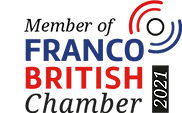Establishing a solid financial foundation is a crucial aspect of settling into life in France, and one of the first steps towards achieving this is opening a French bank account. As an expat, navigating the process of selecting a suitable bank, understanding the different account types, and gathering the necessary documentation can seem daunting. However, with the right guidance and assistance, you can ensure that your banking needs in France are met with confidence and ease.
The professionals at French Connections HCB are dedicated to helping expats like you successfully integrate into French life, and that includes providing expert advice on opening and managing a bank account. With our extensive knowledge of the French banking system, we can help you make informed decisions and guide you through the process of setting up your finances in France.
In this guide, we will explore the essential steps to opening a French bank account as an expat – from selecting a bank, understanding the types of accounts available, and preparing the necessary documentation. With our expertise, you can embark on your journey in France with the assurance that your banking needs are well-managed, allowing you to fully embrace your new life in this beautiful country.
Opening a Bank Account in France: Essential Steps for Expats
1. Choosing the Right Bank for Your Needs
France is home to several large, well-established banks, as well as smaller regional banks and online banking options. When selecting a bank, consider factors such as location, fees, and available services to ensure the chosen institution meets your needs.
– Traditional Banks: Major French banks, such as BNP Paribas, Société Générale, and Crédit Agricole, offer a wide range of services and extensive branch networks. However, they may charge higher fees for certain services compared to smaller or online banks.
– Regional Banks: Smaller regional banks, such as Caisse d’Epargne, Crédit Mutuel, and Banque Populaire, may offer tailored services to cater to the needs of local communities but can have a more limited presence outside their regions.
– Online Banks: Online banks, such as ING, Boursorama Banque, and Monabanq, provide lower fees and convenient banking access via digital platforms. However, they may lack face-to-face services and may require a minimum monthly income for account eligibility.
2. Understanding the Types of Bank Accounts Available
French banks offer various account types, catering to diverse financial needs and requirements. The following are some account options for ex-pats in France:
– Current Account (Compte Courant): A standard account used for day-to-day banking transactions, such as receiving your salary, depositing funds, and paying bills. Current accounts often include a debit card and checkbook.
– Savings Account (Compte d’Épargne): Designed for saving money at a higher interest rate than a current account, savings accounts typically limit the number of withdrawals that can be made within a specified period.
– Joint Account (Compte Joint): An account held in the names of two or more individuals, often used by couples for shared financial management. Both parties have equal rights to access the account and conduct transactions.
3. Preparing the Necessary Documentation
When opening a bank account in France, you will be required to submit specific identification and documentation to verify your identity and residency. The following documents are typically requested by French banks:
– Valid Passport: Proof of your identity, nationality, and date of birth.
– Proof of Residency: Evidence of your address in France, such as a recent utility bill, rental agreement, or a declaration from the person you are residing with, accompanied by their proof of address.
– Proof of Income: Documents demonstrating your employment and income, such as recent payslips or an employment contract.
– French Tax Identification Number: If you are a French resident for tax purposes, you may be required to provide your French tax identification number (Numéro Fiscal), which you will receive upon registering with the French tax authorities.
4. Navigating the Bank Account Opening Process
Once you have selected a suitable bank and prepared the necessary documentation, the following steps will guide you through the account opening process:
– Schedule an Appointment: Contact your chosen bank to schedule an appointment with an advisor to open your account. This can often be done in person, over the phone, or via the bank’s website.
– Attend the Meeting: Bring your documentation to the scheduled meeting and discuss your account options with the bank advisor. They will guide you through the account opening process and outline any fees or specific terms associated with the chosen account type.
– Complete the Application: You will be required to complete and sign an account application form, which details your personal information, account preferences, and any additional services you wish to access, such as overdraft protection or credit facilities.
– Account Activation: The bank will process your application, verify your documentation, and open your account. This can take from a few days to a couple of weeks. Once your account is active, you will receive your account details, checkbook, and debit card by post or for collection at the bank.
Let French Connections HCB Guide You Through the French Banking Experience
Opening a bank account is an essential part of settling into life in France and ensuring that your finances are well-managed and secure. By partnering with French Connections HCB, you can be confident in navigating the French banking system, with the expert support and guidance you need to make informed decisions and establish a solid financial foundation.
Discover how our team at French Connections HCB can help you manage your banking needs in France. With our assistance, you can enjoy the peace of mind that comes from knowing that your financial affairs are in safe and knowledgeable hands, allowing you to focus on making the most of your residency in France.


